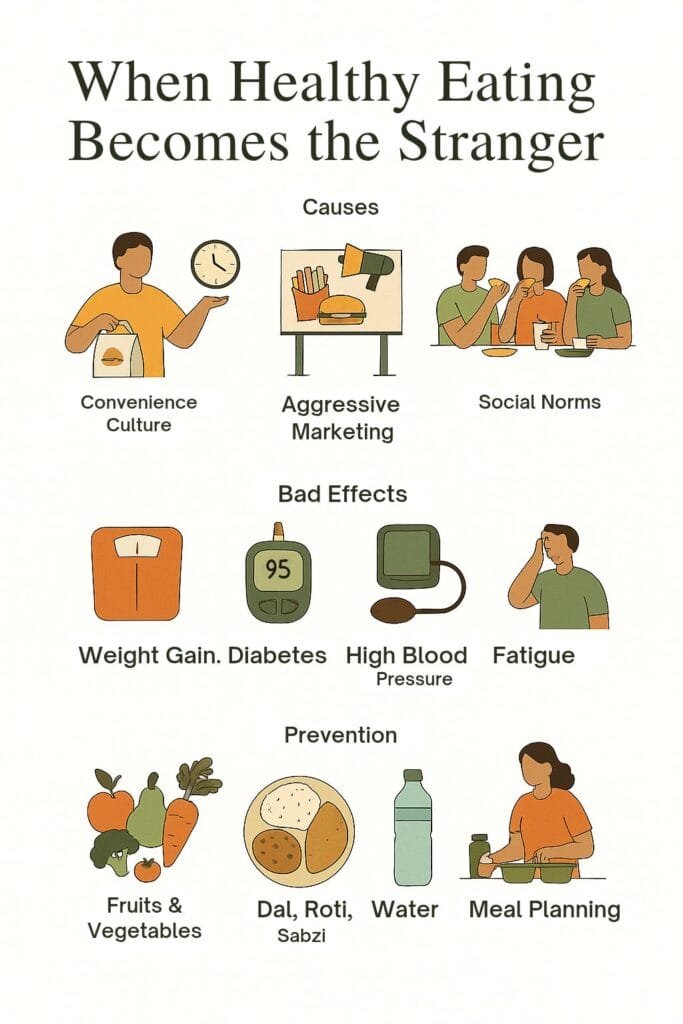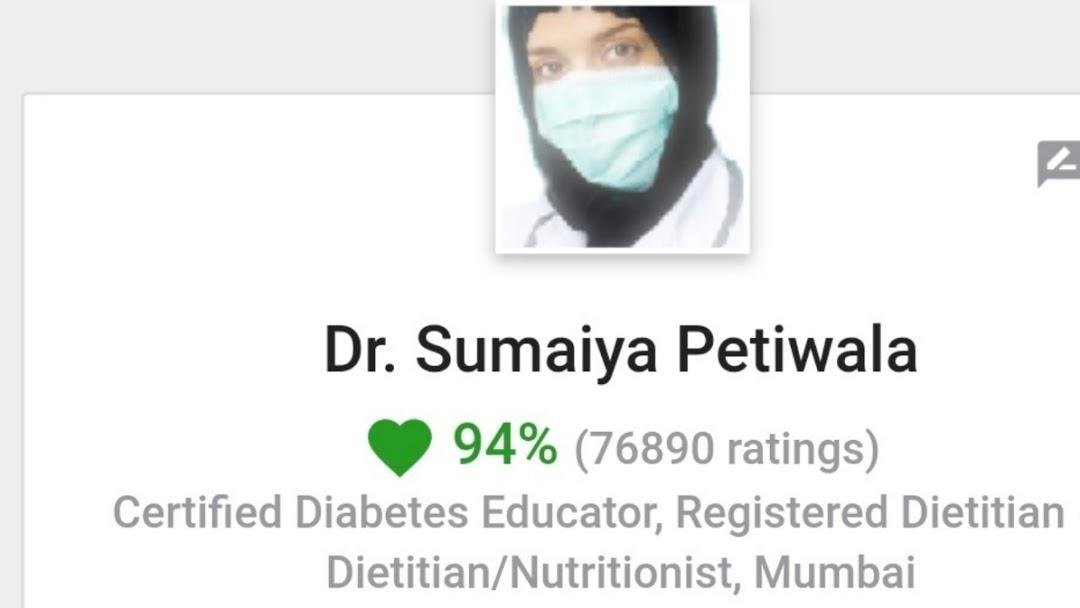Once upon a time, food was medicine. Families thrived on simple home-cooked meals—fresh grains, seasonal vegetables, pulses, fruits, and natural spices. Treats were occasional, not staples. Today, the picture has reversed: processed snacks, sugary drinks, fried foods, and late-night takeaways have become familiar companions, while wholesome meals feel like distant strangers.
In my clinic, when I guide patients to shift from fried snacks, sugary beverages, and processed foods to balanced, wholesome meals, a common question follows:
“Doctor, how long do I need to follow this diet? Will I regain weight once I start eating normally again?”
What they often don’t realize is that they are calling unhealthy eating “normal” and treating healthy food as a temporary, unusual prescription. This reversal of perception is the root problem of our times. Healthy eating should be our default habit, while unhealthy foods should be the rare exception—but today, it’s the exact opposite.
Why Did This Shift Happen?
This change didn’t happen overnight. It is the outcome of multiple modern influences:
Key Reasons Behind the Shift
1. Convenience Culture
Busy schedules, dual-income households, and urban lifestyles have created a demand for quick and ready-to-eat foods.
Packaged snacks and takeaways fit into this convenience-driven routine far more easily than cooking from scratch.
2. Aggressive Food Marketing (The main reason for shift)
Processed food industries invest heavily in colorful packaging, celebrity endorsements, and emotional advertising.
Children grow up associating happiness with fast food and sugary drinks, while fruits and vegetables get no such glamorous promotion.
3. Taste Addiction
Ultra-processed foods are engineered to be hyper-palatable—high in salt, sugar, and fat—stimulating dopamine release.
This creates a form of food craving cycle, making plain, wholesome food seem “boring” in comparison.
4. Changing Social Norms
Eating out, ordering food online, or grabbing a packaged snack has become socially normalized.
Traditional home-cooked meals are seen as “old-fashioned” or “time-consuming,” especially among the younger generation.
5. Economic Accessibility
Ironically, junk food is often cheaper and more accessible in urban areas than fresh produce. A burger meal can cost less than a bowl of fruit salad, shifting consumer choices.
6. Lack of Nutrition Awareness
Many people are unaware of hidden sugars, unhealthy oils, and additives in processed foods.
Without proper education, food decisions are based on taste, price, or habit rather than health.
In short: The shift happened because unhealthy foods became easier, cheaper, tastier, and better marketed, while healthy foods remained under-promoted and effort-intensive
This shift has consequences.
Children often reach for chips instead of fruits, leading to rising childhood obesity.
Young professionals skip breakfast but survive on energy drinks and packaged foods, pushing themselves toward acidity, fatigue, and insulin resistance.
Older adults, once disciplined eaters, now adapt to modern convenience, worsening blood pressure, cholesterol, and joint pain.
Healthy eating should be a habit—a natural part of daily life—because the body silently thanks us for nourishing it well. Unhealthy foods should remain occasional strangers, to be met rarely and with caution.
Practical ways to reclaim balance:
1. Stock your kitchen smartly – Keep fruits, nuts, and roasted snacks handy.
2. Plan your meals – Even simple dal-roti-sabzi is far healthier than ordering out.
3. Hydrate wisely – Replace aerated drinks with water, buttermilk, or infused water.
4. Mindful indulgence – Enjoy your favorite street food, but make it a rare guest, not a daily visitor.

Your health is shaped by what you repeatedly do—not by what you occasionally enjoy. Let us make healthy eating our familiar friend once again, and relegate unhealthy foods to the role of strangers where they belong.
📍 Dr Sumaiya NutriCare Clinic
7, Moore Rd, off Coles Road, Pulikeshi Nagar, Frazer Town, Bengaluru, Karnataka 560005
📞 Phone: 7208660987
📧 Email: doc@drsumaiya.com

